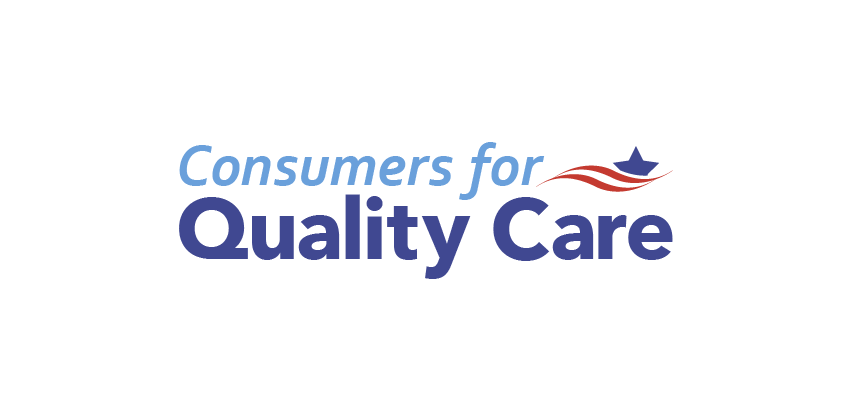Consumers for Quality Care Honors Health Literacy Month by Sharing Consumer Tips to Avoid Medical Debt & Choose the Right Health Insurance Plan
By Consumers for Quality Care, on October 17, 2022

For Immediate Release
October 17, 2022
Contact:
press@consumers4qualitycare.org
Consumers for Quality Care Honors Health Literacy Month by Sharing Consumer Tips to Avoid Medical Debt & Choose the Right Health Insurance Plan
WASHINGTON, D.C. – In recognition of Health Literacy Month, Consumers for Quality Care (CQC) has launched a new campaign to provide consumers with valuable tips and insights that can help them make smart health care decisions during the upcoming Open Enrollment period. CQC, a coalition of advocates, former policymakers, and health advocacy organizations, is urging consumers to educate themselves on the root causes of medical debt and policies they should be aware of that may help them avoid medical debt or lessen its consequences.
“More than half of Americans are concerned that an illness or medical emergency could force them into bankruptcy,” said CQC Board Member Jason Resendez. “Americans deserve access to quality health care without living in fear of the financial repercussions. This past year we have seen advancements with the No Surprises Act, but legislators must do more. Through our Health Literacy Month campaign, CQC is equipping consumers with the information needed to make health care choices that alleviate medical debt, not worsen it.”
According to recent CQC research, almost 3 in 4 voters are extremely concerned or very concerned with health care costs, ranking higher than concerns about housing, childcare, and college costs. CQC’s Health Literacy Month campaign includes information to help consumers better understand recent policy changes designed to eliminate surprise medical bills, learn about potentially risky health care insurance plans, and help low-income consumers understand their right to charity care at nonprofit hospitals.
Specific information shared through CQC’s Health Literacy Month campaign includes:
- Surprise Billing and the No Surprises Act. Over half of Americans are concerned they will get a surprise medical bill, and 60% of voters have skipped or delayed going to a doctor or hospital because of potential out-of-pocket health care costs. The No Surprises Act went into effect January 1, 2022 with the goal of protecting patients from surprise bills, but 20% of patients have received a surprise bill despite the new law.
- Dangers of Junk Plans, High Deductibles, Copays, and Coinsurance and Copay Accumulator Adjustment Programs. 91% of consumers have experienced an obstacle related to payment for health care services, with out-of-pocket health care spending expected to increase by nearly 10% every year for the next five years. Plans with high deductibles, coinsurance, and copays often have lower premiums making them an attractive option, but they can leave consumers on the hook for high out-of-pocket costs. Additionally, short-term limited duration insurance (STLDI) plans (known as junk plans) may look attractive due to a low price point, but often exclude coverage on preexisting conditions, do not cover preventive services, and have dollar value limits on covered services. Copay accumulator adjustment programs, programs that allow insurance companies to double dip by prohibiting the cost sharing coupons relied on by many Americans with chronic diseases from counting against a patient’s deductible or caps on total out-of-pocket spending, are also leaving insured Americans with big bills they can’t afford to pay.
- Nonprofit Hospitals and Medical Debt. IRS rules require nonprofit hospitals to have financial assistance programs and prohibit them from taking “extraordinary collection actions” on unpaid medical bills without an attempt to first determine patients’ eligibility for financial assistance. Despite these regulations, only 42% of hospitals informed patents when they could be eligible for charity care and 45% of nonprofit hospitals routinely send medical bills to patients who quality for charity care. In 2021, CMS required hospitals to publish the price of medical services that can be scheduled in advance. Many have yet to comply.
- Alleviating the Impact of Medical Debt. In 2022, three large credit bureaus announced they would clear an estimated 70% of negative medical debt from consumers credit reports. The Biden administration has also directed all federal agencies to eliminate medical debt as a factor for underwriting in credit programs whenever possible. While this action doesn’t address the causes of medical debt, it is intended to increase consumer protection and help eliminate medical debt as a factor for underwriting in government credit programs.
Open Enrollment for 2023 coverage begins on November 1, 2022, and consumers must select their plan and enroll by December 15. As consumers shop the many plans to prepare for the coming year, it is crucial they understand how the decisions they make can impact their financial health.
CQC’s Health Literacy Month Fact Sheet and consumers resources can be found here. Consumers can follow @4qualitycare for tips and updates throughout the month. You can learn more about Consumers for Quality Care at consumers4qualitycare.org/.
###
Consumers for Quality Care (CQC) is a coalition of advocates and former policymakers working to provide a voice for patients in the health care debate as they demand better care. CQC is led by a board of directors that includes the Honorable Donna Christensen, physician and former Member of Congress; Jim Manley, former senior advisor to Senators Edward Kennedy and Harry Reid; Jason Resendez, community advocate and health care strategist; and Mary L. Smith, former CEO of the Indian Health Service.
